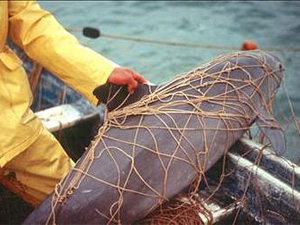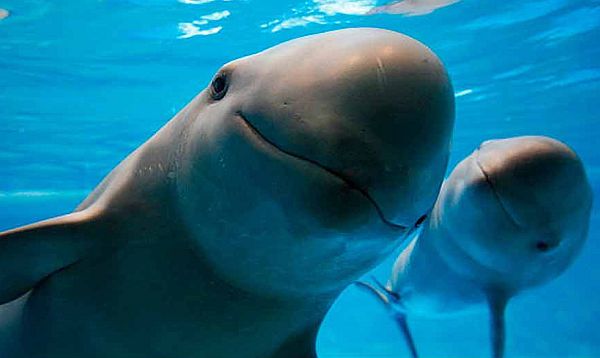Mexico City - Experts said Wednesday that, at most, only 22 vaquitas remain in the Gulf of California, where an increasingly violent battle is playing out between emboldened fishermen and the last line of defense for the world's smallest & most endangered porpoise.
Jorge Urban, a biology professor at the Baja California Sur University, said the 22 vaquitas were heard over a network of acoustic monitors at the end of summer. That was in fact higher than many had expected; some had estimated as little as 15 would remain in the Gulf, also known as the Sea of Cortez, the only place in the world where the vaquita marina is found.
 |
The activists are not alone. Mexican marines and federal police aboard the Farley Mowat fired rubber bullets during the most recent attacks. But officials are not capable of handling the attacks, or preventing fishermen from submerging the hidden nets, which are banned by law from the area.
The Sea of Cortez, which Jacques Cousteau once called "the aquarium of the world," is suffering long-term damage from the nets, which are carefully weighted to float below the surface to avoid detection.
"The fact that they hide their nets does mean that we find active nets months later that have not been checked or forgotten about or lost by the poachers," said said Sea Shepherd first mate Jack Hutton. "If we stop operations, the vaquita will go extinct," he added.
Read the full AP article on the Washington Post's website.


